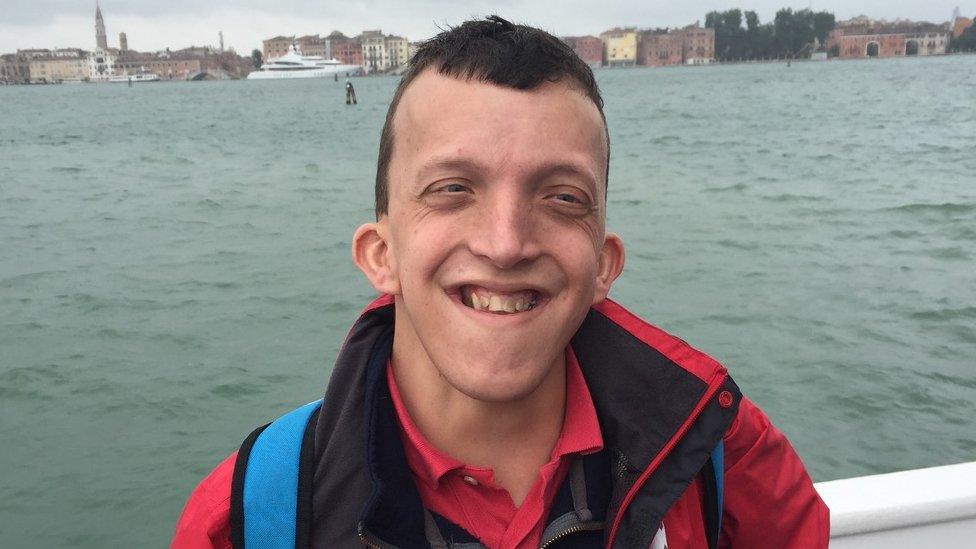Noonan syndrome: Families call for awareness of genetic condition
- Published

Matilda was given a bleak outlook before being born but is now "thriving"
Families have shared their experiences of a condition they say is surprisingly common - yet often doctors involved in treatment have not heard of it.
Researchers from Loughborough University spoke to 67 families living with Noonan syndrome.
The genetic condition affects between one in 2,000 and one in 2,500 UK births, says the NHS.
The research, families say, highlights the need for more social support for families and medical awareness.
The condition can cause distinctive facial features, short stature and serious health problems, including heart defects in those who have the gene.
The university collaborated with the Noonan Syndrome Association, external to spread awareness - including among medical professionals - and to call for further research and increased support for families.

Mark Legg featured on TV show 24 Hours in A&E
Mark Legg, 33, from Sussex, captured the nation's heart when he appeared on Channel 4's 24 Hours in A&E.
He died from health complications associated with the genetic condition.
Dad Ian Legg, co-founder of the Noonan Syndrome Association, says his son lived a fulfilling life.
"What he achieved in 33 years, most of us never achieve in 70," he said.
He says it was important the research got publicised and medical professionals and families see and learn from it.
For one family, Karina and Terry Fay, from Essex, screening discovered one of their twins, Matilda, had Noonan syndrome.

Families like the Fays are calling for awareness to be raised
"We were told our daughter would never be able to eat solid food, she may be able to walk, but it would be very delayed, and she wouldn't be able to have a normal child's lifestyle," said Karina. "There was no mention that Noonan syndrome could affect people differently.
"It was scary. We found, and still find, we are the ones having to explain what Noonan syndrome is to medical professionals."
Dad Terry says Matilda is "thriving". Though she has health issues, Matilda is walking, eating solid foods, and doing many of the things the Fays were told she would never be able to.
Dr Catherine Coveney, research lead, said: "Very often medical professionals don't know much about Noonan syndrome, if anything at all.
"Families have told us of poor support, lack of understanding and difficulties accessing care.
"This, coupled with the fact that teachers, social workers, family, and friends have never heard of the condition, families feel like they are on their own."

Follow BBC East Midlands on Facebook, external, on X, external, or on Instagram, external. Send your story ideas to eastmidsnews@bbc.co.uk, external or via WhatsApp, external on 0808 100 2210.